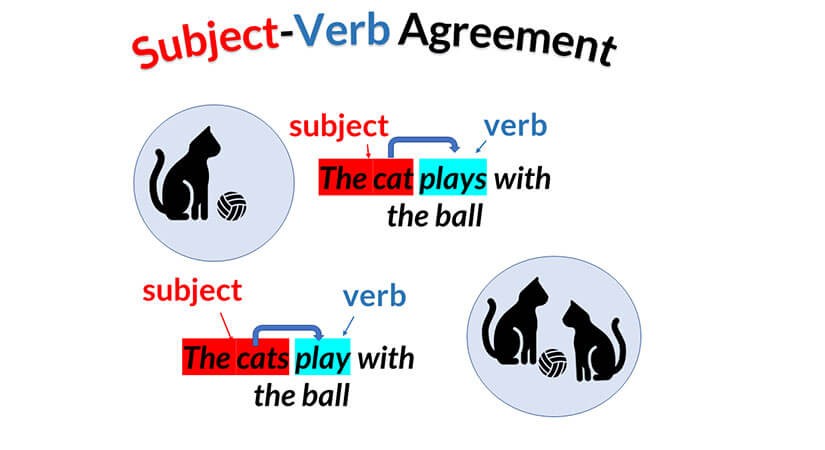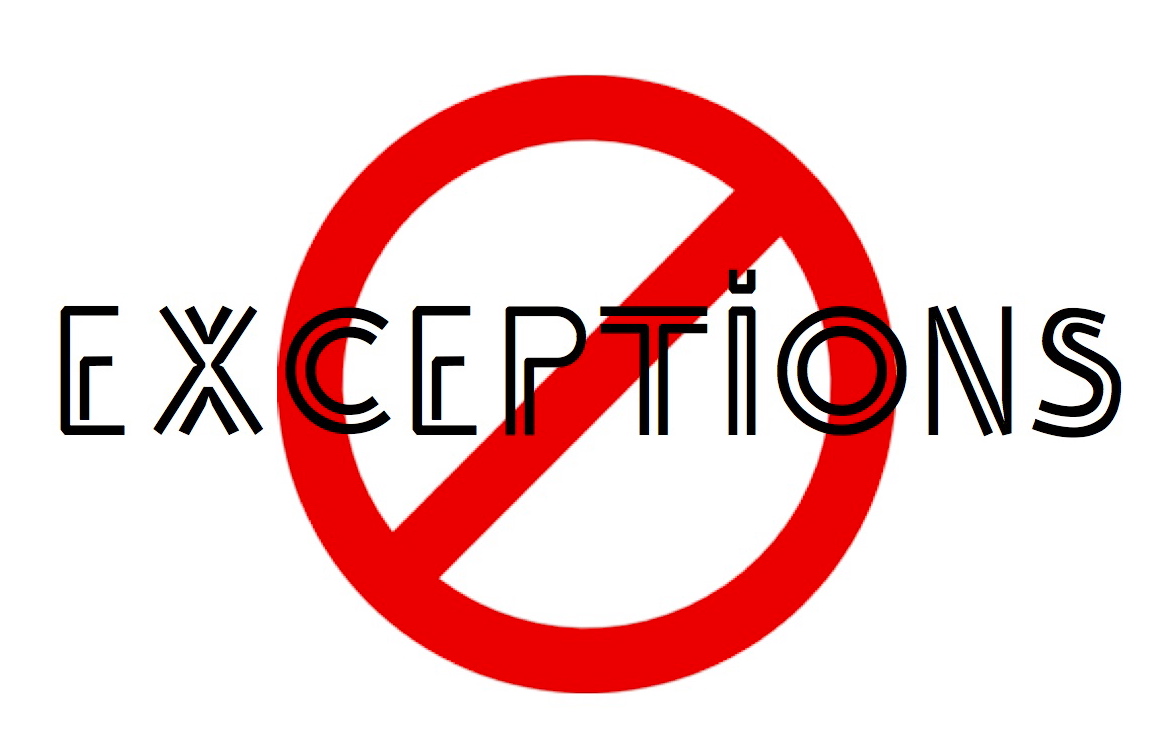Subject-Verb Agreement
Alright, let’s talk about subject-verb agreement! It’s one of those grammar rules that’s super important but often gets a little tricky, especially when you're trying to write clearly. Whether you're writing an essay for IELTS, jotting down a quick email, or even just chatting with someone, getting your subjects and verbs to match up properly can make your writing much easier to understand.
So, in this article, we’re going to dive deep into what subject-verb agreement is all about, why it’s important, and how you can avoid common mistakes. Let's make it casual and straightforward, so you can ace your writing!
Why is Subject-Verb Agreement Important?
Okay, picture this: you're writing a sentence, and your subject and verb just don’t agree. What happens? Your reader gets confused! It’s like trying to fit a square peg into a round hole. The sentence just doesn’t flow. For example:
- Incorrect: The dog walk to the park every morning.
- Correct: The dog walks to the park every morning.
See the difference? The subject (the dog) is singular, so it needs the verb walks, not walk. When the subject and verb don’t match up, it just sounds off, and in a test like IELTS, that could cost you some points. The goal here is to make sure your sentences are clean and easy to understand, so your ideas come through clearly without any grammatical distractions.

The Basics of Subject-Verb Agreement
Alright, here are the golden rules of subject-verb agreement that’ll help you keep things on track. They're simple, but they can get a bit sneaky when the sentences get more complicated, so pay attention!
1. Singular subjects take singular verbs
When your subject is singular (meaning one thing or person), your verb also needs to be singular.
- Example: The cat sleeps on the sofa.
- Here, cat is singular, so we use the singular verb sleeps.
2. Plural subjects take plural verbs
When your subject is plural (meaning more than one thing or person), your verb has to match that and be plural too.
- Example: The dogs run in the park.
- Dogs is plural, so the verb run is also plural.
3. Watch out for collective nouns
Collective nouns (like team, family, group) refer to a group of things or people but are treated as singular when talking about the group as a whole.
- Example: The team plays well together.
- Even though a team is made up of multiple players, we treat it as a singular entity, so we use the singular verb plays.
However, if you’re talking about the individuals within the group, you’d use a plural verb:
- Example: The team are arguing among themselves.
- Here, you’re focusing on the individuals (players), so you use are.
4. Subjects connected by “and” take a plural verb
When you have two subjects connected by and, you’re talking about more than one thing, so you need a plural verb.
- Example: Tom and Jerry are best friends.
- Tom and Jerry are two people, so we use the plural verb are.
5. Subjects connected by “or” or “nor” agree with the subject closest to the verb
When subjects are connected by or or nor, the verb should agree with the subject that’s closest to it.
- Example: Neither the teacher nor the students have finished their homework.
- Here, students is plural, so we use the plural verb have.
- Example: Neither the students nor the teacher has finished their homework.
- In this case, teacher is singular, so we use the singular verb has.
ResearchGate published an analysis showing that subject-verb agreement is the third most common grammar error in written English essays submitted by ESL (English as a Second Language) students, following punctuation and word order mistakes.

Common Exceptions and Tricky Cases
Now, let’s talk about some situations that might trip you up. English loves to throw curveballs, right? Let’s go through some exceptions to the rules:
Indefinite Pronouns
Some indefinite pronouns (like everyone, someone, each, and everybody) might sound plural, but they’re treated as singular subjects.
- Example: Everyone loves the new movie.
- Even though everyone refers to a bunch of people, we still treat it as singular, so the verb is loves.
There is/There are
When you start a sentence with there is or there are, the verb matches the subject that follows it.
- Example: There are many books on the shelf.
- Books is plural, so we use the plural verb are.
- Example: There is a book on the table.
- Book is singular, so we use the singular verb is.
"A number of" vs. "The number of"
Here’s a cool one: A number of is plural, while The number of is singular.
- Example: A number of students have completed the test.
- Students is plural, so we use the plural verb have.
- Example: The number of students in the class is increasing.
- Number is singular, so we use the singular verb is.
Titles of Works or Names of Organizations
Even if a title sounds plural, like the name of a group or a book with a plural title, it's considered singular.
- Example: "The Avengers" is a popular movie.
- Even though Avengers sounds like it’s plural, it’s treated as a singular title, so we use is.
According to a 2018 survey by Grammarly, 84% of professionals said that grammar mistakes, including subject-verb agreement errors, hurt their credibility in the workplace. More than half of respondents said they would not hire someone with frequent grammar mistakes in their resume or cover letter.
Practice Session
Exercise 1: Fill in the blanks with the correct verb
- The books on the shelf __________ (is/are) dusty.
- Neither the teacher nor the students __________ (has/have) finished their homework.
- There __________ (is/are) many people waiting outside.
- Everyone __________ (was/were) excited about the concert.
- The number of participants __________ (has/have) increased this year.
- My friend and I __________ (was/were) going to the movies when we saw you.
- The news __________ (was/were) very surprising yesterday.
- A lot of people __________ (is/are) attending the event.
- Both the movie and the book __________ (is/are) amazing.
- Each of the boys __________ (is/are) responsible for his own work.
Exercise 2: Correct the sentences
- The team have been working hard on their project.
- There is several reasons why she left the company.
- Either the teacher or the students are responsible for the decision.
- Many of the students in the class loves reading books.
- A number of people was invited to the wedding.
- The government has launched a new initiative to improve education.
- The data are still being analyzed by the researchers.
- Either the teacher or the students is expected to answer the questions.
- Both of my brothers plays basketball on the weekends.
- Everyone at the party were dancing and having fun.
Exercise 3: Identify the subject and verb, and explain the agreement
- The dog runs quickly across the yard.
- Subject: __________, Verb: __________
- Why is this correct? __________________
- Neither the movie nor the director is going to attend the event.
- Subject: __________, Verb: __________
- Why is this correct? __________________
- Some of the students were absent last week.
- Subject: __________, Verb: __________
- Why is this correct? __________________
- The number of people in the room has decreased significantly.
- Subject: __________, Verb: __________
- Why is this correct? __________________
- There are many reasons to be excited about the new project.
- Subject: __________, Verb: __________
- Why is this correct? __________________
Answers
Exercise 1:
- are – Books is plural, so we use are.
- have – Students is plural (even though teacher is singular, the verb agrees with the nearest subject).
- are – People is plural, so we use are.
- was – Everyone is singular, so we use was.
- has – Number is singular, so we use has.
- were – My friend and I is plural, so we use were.
- was – News is uncountable and singular, so we use was.
- are – People is plural, so we use are.
- are – Movie and book are two things, so we use are.
- is – Each is singular, so we use is.
Exercise 2:
- Incorrect: The team have been working hard on their project.
Correct: The team has been working hard on their project.
(A team is treated as singular, so the verb should be has.) - Incorrect: There is several reasons why she left the company.
Correct: There are several reasons why she left the company.
(We use are because reasons is plural.) - Incorrect: Either the teacher or the students are responsible for the decision.
Correct: Either the teacher or the students is responsible for the decision.
(Here, the verb agrees with the subject closest to it, so students is plural, but is works when we focus on responsible for the decision.) - Incorrect: Many of the students in the class loves reading books.
Correct: Many of the students in the class love reading books.
(Students is plural, so the verb should be love.) - Incorrect: A number of people was invited to the wedding.
Correct: A number of people were invited to the wedding.
(The phrase a number of is plural, so use were.) - Correct: The government has launched a new initiative to improve education.
(We treat government as a singular entity, so has is correct.) - Correct: The data are still being analyzed by the researchers.
(Data is treated as plural, so are is used.) - Incorrect: Either the teacher or the students is expected to answer the questions.
Correct: Either the teacher or the students are expected to answer the questions.
(Here, students is plural, so we use are.) - Incorrect: Both of my brothers plays basketball on the weekends.
Correct: Both of my brothers play basketball on the weekends.
(When both is used, it’s plural, so we use play.) - Incorrect: Everyone at the party were dancing and having fun.
Correct: Everyone at the party was dancing and having fun.
(We treat everyone as singular, so use was.)
Exercise 3:
- Subject: The dog, Verb: runs
- Explanation: Dog is singular, so we use the singular verb runs.
- Subject: Neither the movie nor the director, Verb: is
- Explanation: The verb agrees with the subject closest to it, which is director (singular), so we use is.
- Subject: Some of the students, Verb: were
- Explanation: Students is plural, so we use were.
- Subject: The number of people, Verb: has
- Explanation: Number is singular, so we use has.
- Subject: There, Verb: are
- Explanation: Reasons is plural, so we use are.
